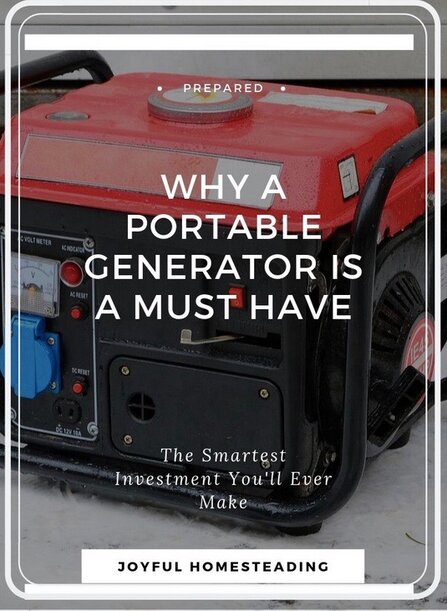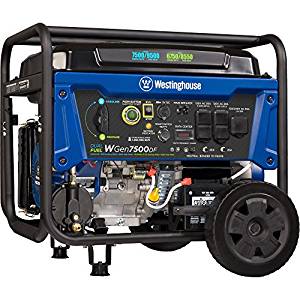Portable Propane Generators
Portable propane generators are a good investment if you plan on living on your own land, where you'll need an alternate source of power should the lights go out. Any type of generator is a good investment, whether you use a generator made with solar panels or one of the more conventional kinds.
We have a solar generator, but a propane generator can also be cost effective and better for long time storage. Here are some of the positive aspects of a a propane generator.

What's the Difference?
So what separates them from other generators? You'll find that a propane generator is less expensive to run than the gasoline version, saving you money.
Also propane is a much cleaner fuel that produces fewer toxic fumes, making it safer to use around the home.
Propane tends to last longer, and the fuel is easier to store.
Plus it has a really long shelf life, while gasoline will go bad after a few months without additives added in.
A portable generator that can run on propane, like this one, is a great way to be prepared.
With propane, you simply get a new propane tank, so you don't have to worry about gasoline spills or cleaning up afterwards. Portable propane generators can also be hooked up to your existing gas line in an emergency.
How Much Power Do They Produce?
These generators typically come in sizes of 3,500 Watts, 6,000 Watts, 12,000 Watts or 13,000 Watts.
What to Consider When Purchasing Portable Propane Generators
Think about how you plan to use your generator before you make a purchase. Do you just want to provide power for a few electrical devices? If that's the case for you, then a 3,000 to 6,000 Watt generator should do the trick.
You likely won't want to run your central air on a propane generator and certainly not a central heater. A 2.5-ton central air conditioning unit will suck up 3,500 Watts per hour, while a central heater can use more than 26,500 Watts per hour in really cold climates, meaning you will probably have to rely on an alternative source of heat in an emergency.
But you can keep the blower on your furnace running to keep your pipes from freezer. Plus you can usually also run a refrigerator and freezer on a portable propane generator, to avoid frozen pipes and thawed food, two big plusses.
One Thing to Consider
Burning propane does produce carbon monoxide, so as with other generators, propane generators should never be run indoors.
A Wise Investment
It may seem like a big investment at the time, but by saving your pipes and your food, you'll definitely recoup your costs the next time the power goes out.








New! Comments
Have your say about what you just read! Leave me a comment in the box below.